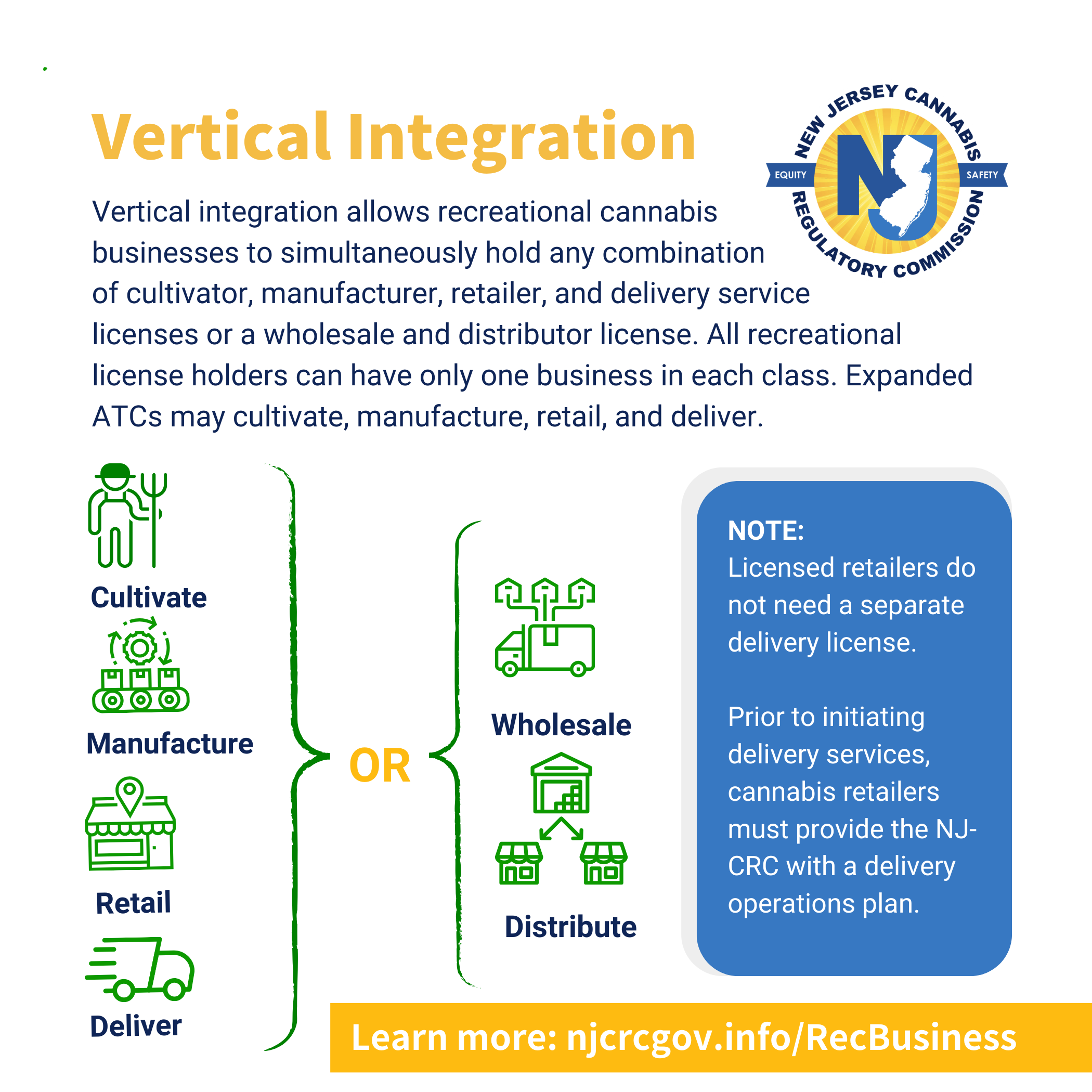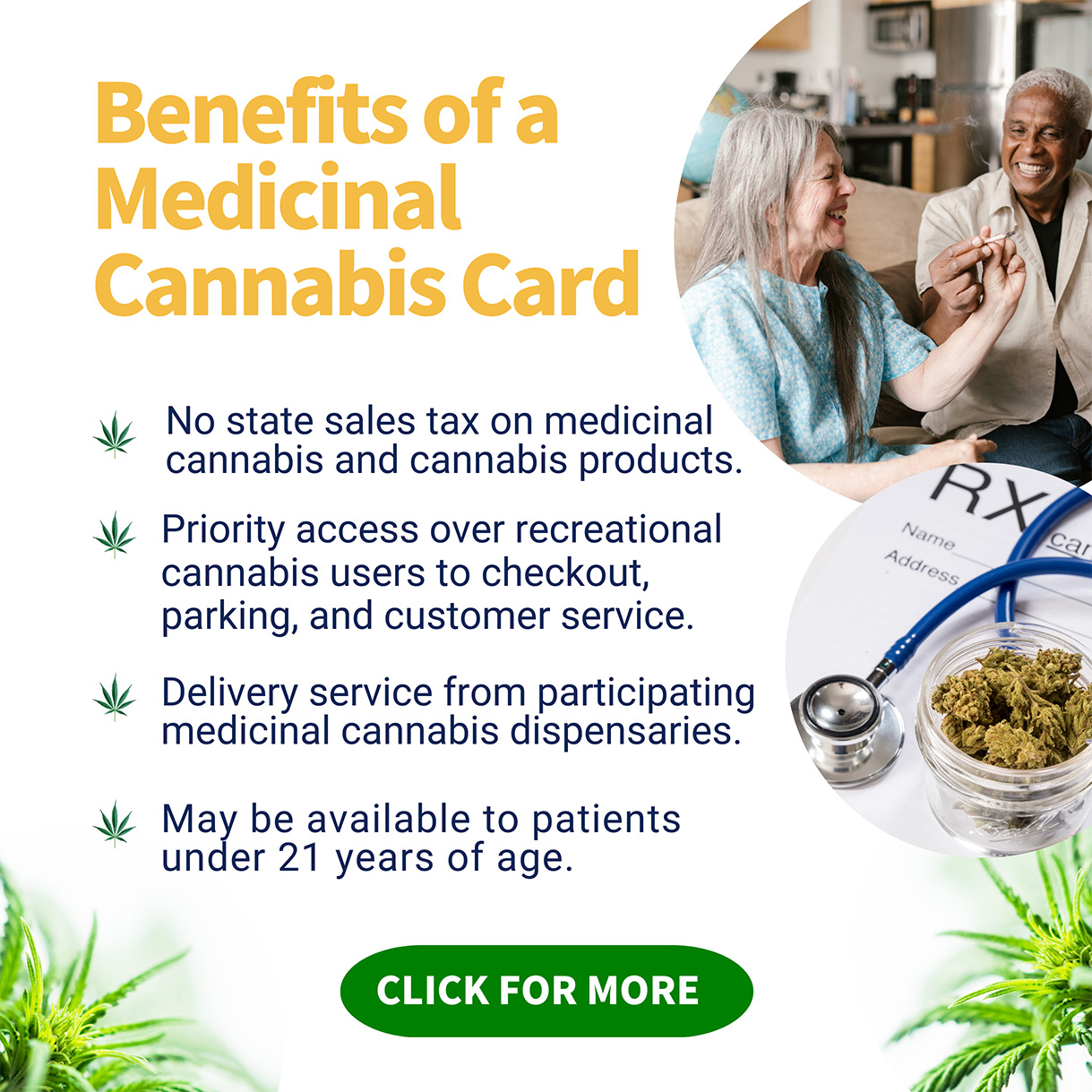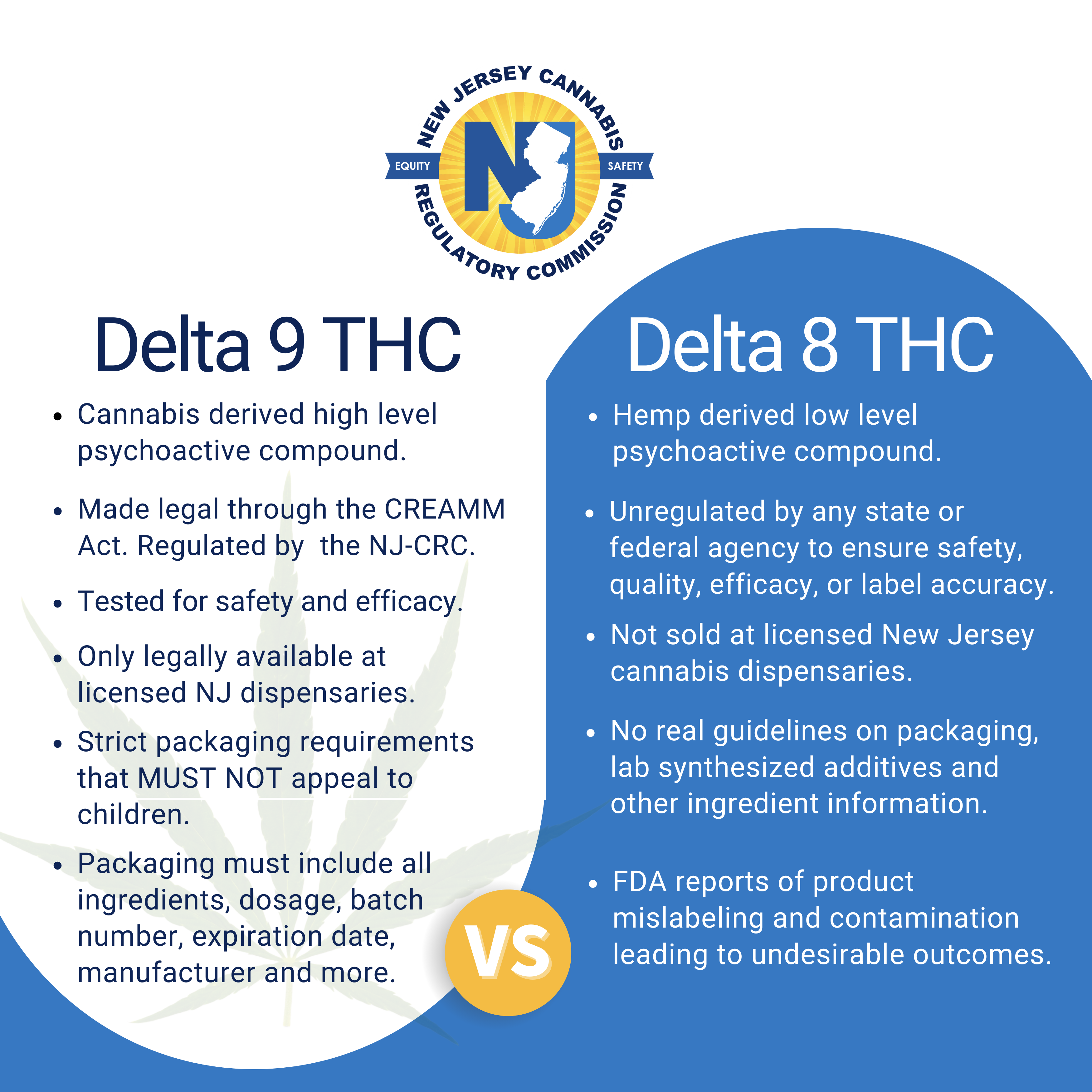
Seniors and Cannabis - Helping older New Jerseyans navigate legal cannabis
With more than 100 licensed dispensaries across the state, access to cannabis is easier than ever and many seniors are considering the benefits of cannabis products for their physical health and mental wellbeing. Some are new to cannabis use, others are longtime users, still others are returning to cannabis use after many years. No matter which group you fall in, it is essential for everyone to understand cannabis and cannabis products, and the cannabis landscape in New Jersey.
Cannabis Potency is Higher Than It Used to Be:
According to the National Institute of Health, the THC potency of cannabis products has increased exponentially in the last 30 years. In 1995, the average percentage of delta-9-tetrahydrocannabinol (THC) found in cannabis was around 3.96%. By 2021, this number had increased to 15.34%. This increase in potency means that people should exercise caution when consuming cannabis. If you used to smoke joints in your dorm room 50 years ago, you will find that a “J” has a much stronger effect on you than you remember.
The best approach to trying cannabis and cannabis products for the first time, or returning to them after a long hiatus, is by using a low dosage product and waiting a few hours to fully measure the physical effects. Understand, the effects of using cannabis can vary from person to person. Underlying health conditions, interactions with other substances, even whether you’ve recently eaten can affect how quickly and how much you feel the effects of cannabis consumption.
Types of Cannabis Products in the Legal New Jersey Market:
The legal cannabis market offers a variety of products catering to different preferences and needs. These include:
- Flower: Dried cannabis flower that can be smoked or vaporized.
- Edibles: Cannabis-infused food and beverages, such as gummies, chocolates, and drinks.
- Tinctures: Liquid extracts that are administered under the tongue for fast absorption.
- Topicals: Cannabis-infused creams, balms, and lotions for localized relief.
- Concentrates: Highly potent extracts, including oils, waxes, and shatter, often used for vaporization.
Until you know how cannabis and cannabis products will affect you, start with a low-dose product and go slowly. Also, recognize that the form cannabis takes dictates how quickly the product takes effect and how long the effects last.
Smoking and Vaping
- Takes effect: 2 - 10 minutes
- Peaks: 30 - 50 minutes
- Effects last: 4 - 6 hours
All smoking is bad for your health. While the ingredient in a joint is not the same as in a cigarette, it still involves taking smoke into your lungs – which causes harm.
Consumables/Edibles
- Takes effect: 1- 3 hours
- Peaks: 3 hours
- Effects last: Up to 24 hours
Testing and Packaging:
In the state of New Jersey, cannabis products must undergo testing for potency, pesticides, heavy metals, and microbial contaminants. Legal cannabis products must be packaged in child-resistant containers with clear labeling indicating dosage instructions, potential allergens, and product expiration dates.
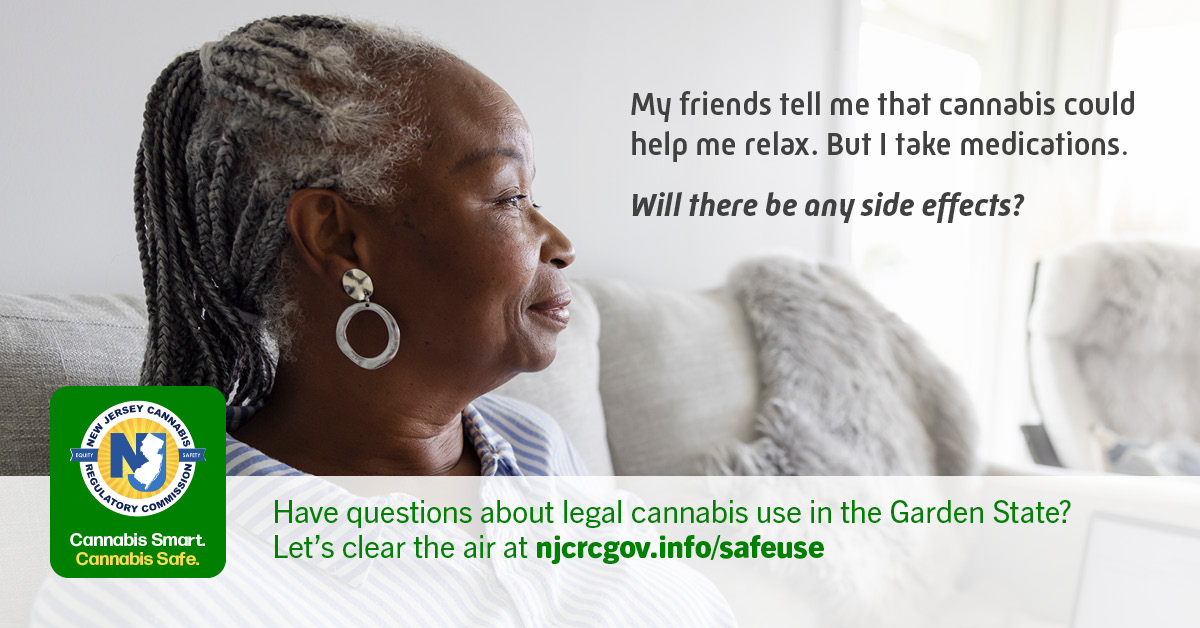
Cannabis and Prescription Medications:
Older adults are more likely to be taking prescription medications and should be aware that cannabis can potentially interfere with the efficacy of their medicine. It is important to talk to your health care providers for personalized advice based on your health, medication history, and treatment plan.
While there is need for much more research into the medical applicability of cannabis and cannabis products, there is evidence that cannabis can be a beneficial part of the treatment of amyotrophic lateral sclerosis (ALS), cancer, chronic pain, glaucoma, inflammatory bowel diseases - including Crohn’s - migraine, Multiple sclerosis (MS) and more.
Questions to Ask Your Health Care Provider Before Using Cannabis :
- How might cannabis interact with my current medications, and are there any potential risks or adverse effects?
- Given my medical history, are there any specific health concerns or conditions that might be affected by cannabis use?
- What is the recommended dosage for cannabis, and should I consider specific forms like edibles, tinctures, or vaping?
- What are the common side effects of cannabis, and how can I manage them, especially in combination with my other medications?
- Can cannabis effectively alleviate symptoms related to my medical condition, and what scientific evidence supports its use in my case?
- How will we monitor the effects of cannabis on my health, and are there plans for adjusting my treatment plan if needed?
- Are there any potential long-term effects or risks associated with regular cannabis use, and how might it impact my overall health in the future?
If you and your healthcare provider determine that cannabis should be a part of your treatment, you might benefit from enrolling in New Jersey's Medicinal Cannabis Program (MCP). Patients enrolled in the MCP pay no state sales tax, have priority access and hours at dispensaries, often receive store discounts, have designated parking, can reserve products to ensure availability and more.
If you are facing mobility challenges, the program allows patients to appoint caregivers to make purchases on their behalf.
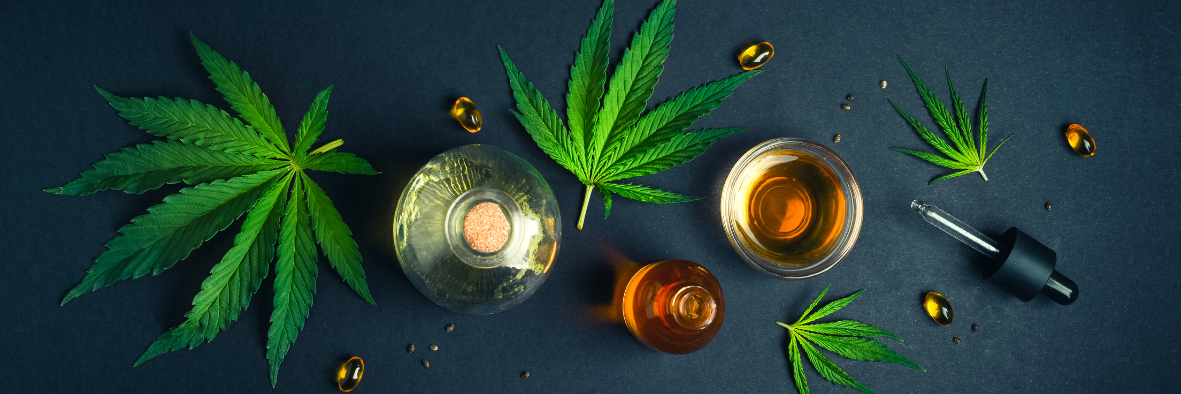
Questions to Ask When Shopping for Cannabis:
- What is the potency of this product?
- Are there any specific terpenes or cannabinoids in this product that may benefit my condition or provide the effects I am looking for?
- Can you provide guidance on dosing and consumption methods for this product?
By embracing education, caution, and the resources available in the legal cannabis market, seniors can navigate their cannabis journey with confidence. Whether you're new to cannabis, returning after a hiatus, or seeking safer options, understanding the nuances of cannabis products, and accessing legal, tested options in New Jersey ensures a positive and informed experience. As always, consulting with healthcare professionals and asking questions when purchasing cannabis products is critical to maximizing the benefits while minimizing risks.
Additional resources:
DISCLAIMER
The information presented in this blog post is for informational purposes only and should not be used as a substitute for professional medical advice, diagnosis, or treatment. Seek advice from your physician or other qualified healthcare provider if you have any questions about a medical condition or incorporating cannabis into your treatment. Do not ignore professional medical advice or delay seeking it due to anything you may have read on this website.
Previous Blog Posts
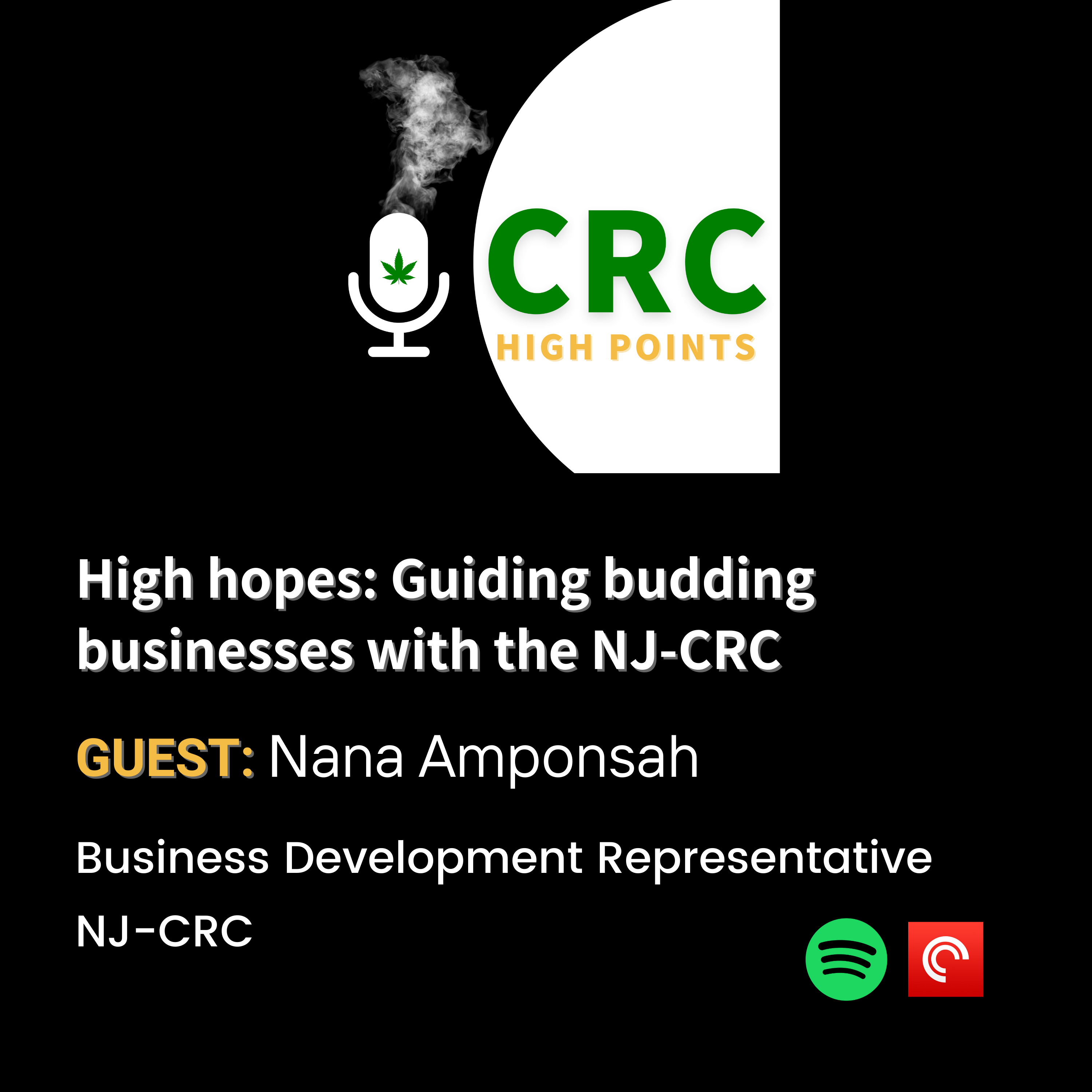
High Hopes: Guiding budding businesses with the NJ-CRC
09/5/2025
Nana Amponsah, business development representative at NJ-CRC, talks about her role, as part of the Office of Diversity & Inclusion, in identifying challenges cannabis entrepreneurs face, providing assistance to applicants and new businesses wherever possible, and acting as a liaison between cannapreneurs and other state agencies that provide support. She also explains how NJ cannabis business development differs from other fields, emphasizing the continuous need for support.

Tips for SMART Gatherings This Holiday Season
11/26/2025
The holidays are a time for food, fun, laughter, and connecting with the people who make life sweeter. And as more adults in New Jersey choose to enjoy, or gift legal cannabis during the season, the NJ-CRC has launched its second safe-use campaign, S.M.A.R.T., to help keep celebrations (relatively) stress-free. S.M.A.R.T. is an easy way to remember the basics of responsible cannabis use, especially when travel is constant, roads are chaotic, homes are busy, and curious little ones are wandering.
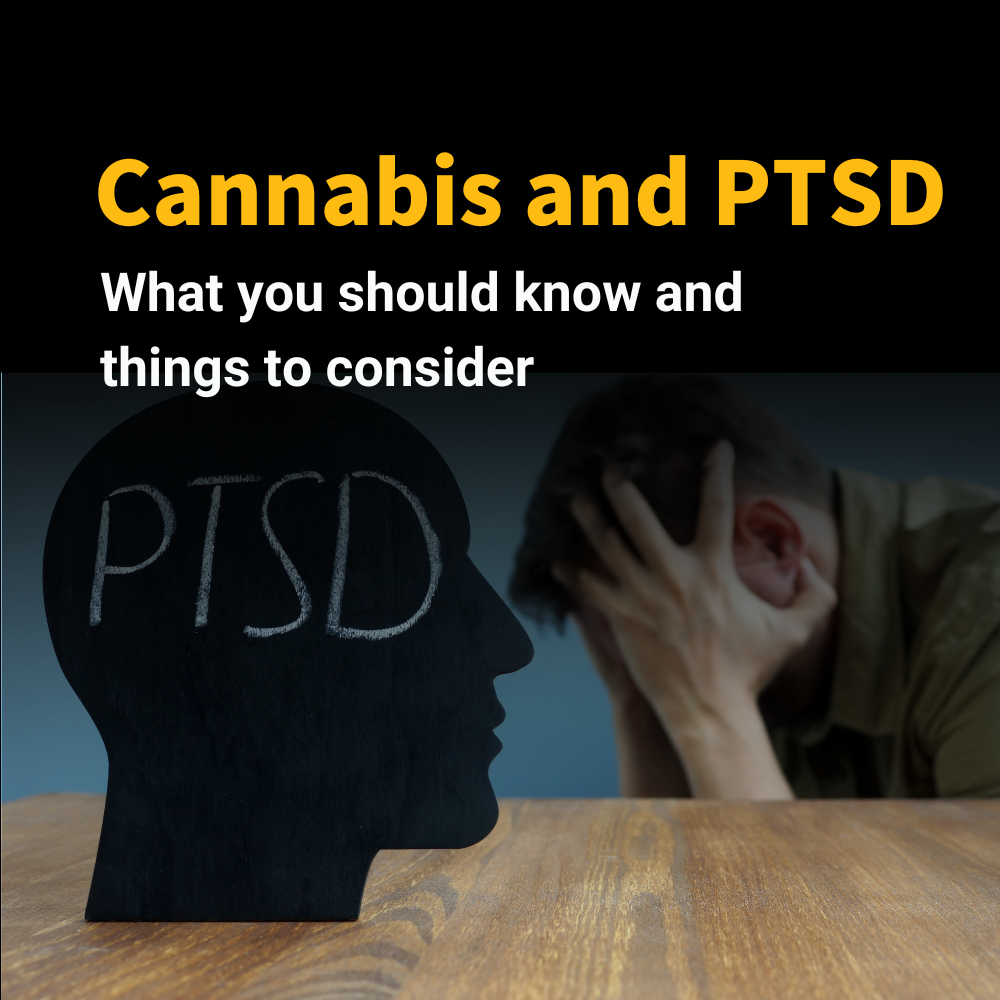
Cannabis and PTSD
10/20/2025
Everyone feels pain at some point—whether it’s a sore back after a long day, a pounding headache, or stomach cramps that just won’t let up. But for some people, pain isn’t temporary. It’s a constant part of daily life. Anxiety disorders are the most common qualifying condition for New Jersey’s Medicinal Cannabis Program (MCP). However, various forms of pain also rank highly on the list of qualifying conditions. Specifically, chronic pain related to musculoskeletal disorders is the second most common condition, migraines are fourth, and chronic pain originating from visceral sources ranks fifth.
 Official Site of The State of New Jersey
Official Site of The State of New Jersey
